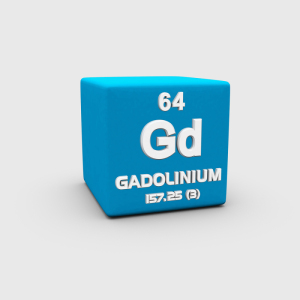por
Thomas Dworetzky, Contributing Reporter | April 05, 2017
The American College of Radiology has come out in disagreement with the Pharmacovigilance Risk Assessment Committee (PRAC) of the European Medicines Agency, over its recommendations concerning linear gadolinium-based contrast agents (GBCAs).
The European group raised the alarm concerning the potential risk of gadolinium accumulation in humans,
recommending “regulatory actions, including suspension for some marketing authorizations.”
The ACR advised that, “although intracranial gadolinium retention following intravenous GBCA administration has only recently been reported, it has been known for over 10 years that some gadolinium chelates are not completely stable in vivo.”



Ad Statistics
Times Displayed: 75267
Times Visited: 5317 MIT labs, experts in Multi-Vendor component level repair of: MRI Coils, RF amplifiers, Gradient Amplifiers Contrast Media Injectors. System repairs, sub-assembly repairs, component level repairs, refurbish/calibrate. info@mitlabsusa.com/+1 (305) 470-8013
Based on its review of the findings, the group advised that, “fortunately, there is indisputable evidence that the amount of gadolinium deposited in tissues after a single GBCA dose is incredibly small, and is detectable using only the most sensitive of medical and scientific instrumentation,” — adding that, “although gadolinium accumulation appears to be dose-dependent, there remains no evidence of cellular toxicity, nor is there credible evidence of neurologic sequelae after over 300 million worldwide human doses.”
The PRAC review had found evidence of brain deposits of the agent in “small amounts” after MR body scans
“but no signs of harm.”
In its March 10th announcement PRAC advised that the specific agents included:
- Gadobenic acid, marketed under the trade name MultiHance by Bracco
- Gadodiamide, sold under the trade name Omniscan by GE Healthcare
- Gadopentetic acid, marketed as Magnevist by Bayer HealthCare Pharmaceuticals
- Gadoversetamide, sold as Optimark by Guerbet
Guerbet “concurred” with the PRAC gadolinium recommendations, and in a March 31 statement announced that it had proactively requested a labeling change in the U.S. to Optimark (gadoversetamide) injection, which had been approved by the FDA in August, 2016.
“This change is included in the Pharmacokinetics section (12.3) of the Prescribing Information and notes: Increased signal intensity on non-contrast T1-weighted images within the brain, mainly the globus pallidus and the dentate nucleus, has been observed after multiple administrations of linear (ionic and nonionic) gadolinium-based contrast agents due to gadolinium deposition,” stated the company.
"Guerbet proactively sought this labeling change to ensure that prescribers and patients have all the relevant information clearly available regarding linear GBCAs," said Massimo Carrara, general manager, Guerbet U.S.

